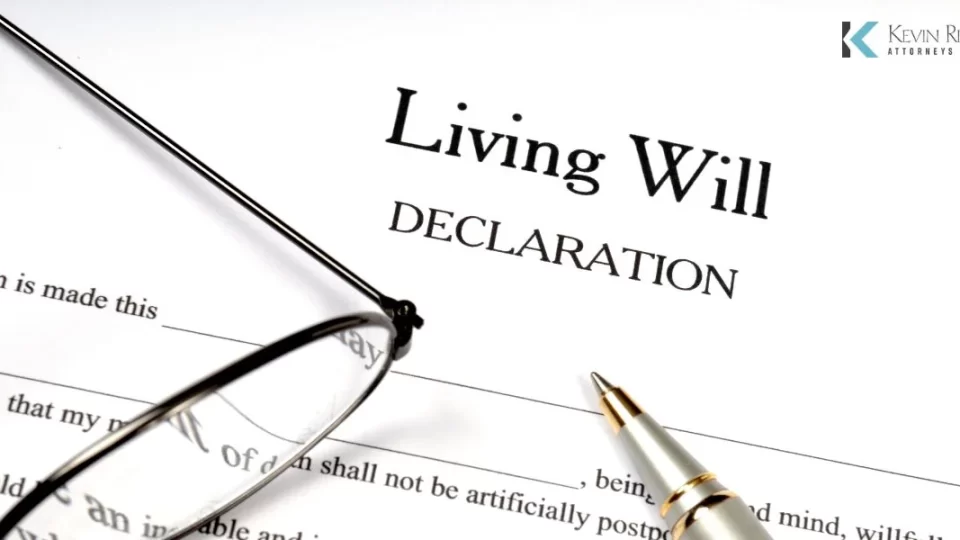What Are the Requirements for a Will to Be Valid in California?

The process of creating a will in California is an important step to properly manage your estate and ensure your assets will be distributed to your liking after you pass away. The age-old question, “What are the requirements for a will to be valid in California?” is one many individuals ask to be sure their will is legally enforceable when they are no longer around to validate it is executed properly.
In the state of California, there are several different criteria that must be satisfied in collaboration with your Huntington Beach will lawyer for a will to be considered valid. This includes:
Age and Mental Capacity
The individual who creates the will in California must be at least 18 years of age. This is what the state has determined to be the age of maturity to start making significant decisions independently. While age is important, so is an individual’s mental health. If there is any evidence that a testator is not of sound mind, they could be unenforceable as the individual may not have a true understanding of what they created when they did.
Voluntary Execution
There is not allowed to be any external pressure or influence when someone is making their will. All of it must be voluntary. This means the testator must have selected every detail of their will without evidence of coercion or duress. Validating that the will was made completely voluntarily helps to protect the integrity of the estate planning process and prevent possible legal disputes that could arise in the future.
Written Document
California law states that all wills must be written for them to be valid. The other option, holographic wills, is also allowed as long as the content is entirely written and signed by the testator’s hand. These do not require a witness to sign the document. However, it must be clearly legible and express exactly how the testator wants the will to be carried out. If someone wants their will to be typed or printed, there are stricter formalities an attorney can guide you on.
Signatures
Any will that is typed or printed must include the testator’s signature at the end of the document. This is what makes the document official. It’s a written declaration that the will expresses the individual’s exact wishes on how they want their estate to be distributed. In the event a testator is not able to sign their own will, someone else can as long as they are present and have given clear permission to do so. This provides a witness with the ability to testify that permission was given.
Witnesses
California estate law states that two impartial witnesses must be present while someone is signing their will. It must be understood by both witnesses that the document is intended to be the testator’s will. During the will signing, the testators must be there directly observing what is happening. They also are required to sign the will themselves. This extra supervision is to prevent any unsolvable discrepancies from arising in the future.
Clarity in Disposition
The will needs to be overly detailed about every asset and how it is to be distributed. It should specify who each beneficiary is, which assets each of them will receive, and if there are any special conditions that would impact how they are received. Any ambiguous language could cause unnecessary challenges in the future and require people to interpret a will when the testator is no longer around to speak for themself.
All of these elements help to make a will valid in California. To ensure you don’t miss any critical step in this process, have an estate planning and probate attorney supervise everything from start to finish. This can prevent any delays or complications in the future because of an unnecessary oversight that an estate planning lawyer could have caught.
FAQ
Q: Does a Will in California Need to Be Notarized?
A: No, California wills do not need to be notarized to be defined as valid. This means that as long as all the other criteria to validate a will are satisfied, an unnotarized will is still legally enforceable. While it’s not legally required, some people still feel more comfortable making their will “self-proving” by signing an affidavit in front of a notary. Some people appreciate knowing this could simplify the probate process in the future despite not being legally required.
Q: What Invalidates a Will in California?
A: If a will was not assigned to all of the legal requirements stated under California law, it invalidates the document. For example, not having all of the required witness signatures needed or if the testator was having a mental health episode. Proving evidence of fraud or undue influence in court can also invalidate the will after a judge and jury have made the final ruling. Any will that is incomplete or in the middle of modifications is also not valid.
Q: Do All Wills Need to Be Filed with the Court in California?
A: Eventually, all wills will need to be filed with the court after a testator has passed away as part of California’s probate process. It is required to be filed within 30 days after the testator has died. Just because a will is not required to be filed with a court during a testator’s life does not mean that it cannot be done. Some people prefer to file it with the court early to keep it safe and easily retrievable so that modifications can be made when needed.
Q: Can I Make Changes to My Will After It Has Been Signed in California?
A: Yes, you are able to make as many changes as you need after your will has been signed in California. All changes are required to be executed under the same formalities as it was the first time. This means all modifications are written, signed, and properly witnessed just as it was in the original will. If there are significant changes, it may be easier to revoke the entire previous will and start a new one from scratch.
Contact Kevin Rice, Attorneys At Law, Today
If you are looking for legal guidance on how to draft, revise, or better understand your valid California will, contact Kevin Rice, Attorneys at Law, today. Our team will ensure that your final wishes are clearly stated and legally protected, even after you are gone. Contact us today to secure your legacy.
Free Case Review
How much is your case worth? Fill out the form below to schedule a free initial consultation.



